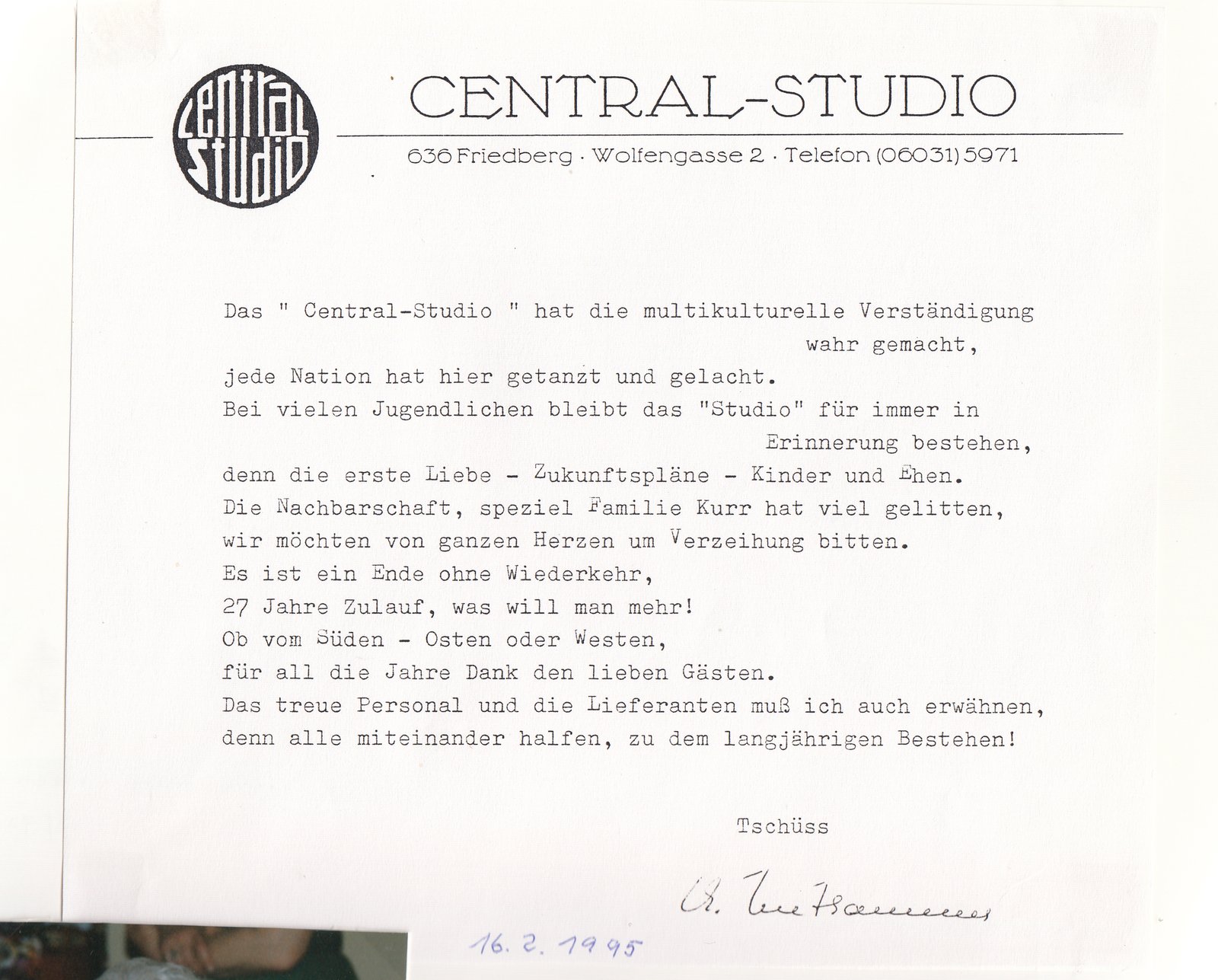____ _____ _____ __ __ __ __ ___ _ _
(_ _)( _ )( _ ) ( \/ )( )( )/ __)( )_( )
)( )(_)( )(_)( ) ( )(__)(( (__ ) _ (
(__) (_____)(_____) (_/\/\_)(______)\___)(_) (_)
_____ ____ ____ _ _ ____ ____ _ _
( _ )( ___) ( ___)( \/ )( ___)( _ \( \/ )___
)(_)( )__) )__) \ / )__) ) / \ /(___)
(_____)(__) (____) \/ (____)(_)\_) (__)
____ _ _ ____ _ _ ___
(_ _)( )_( )(_ _)( \( )/ __)
)( ) _ ( _)(_ ) (( (_-.
(__) (_) (_)(____)(_)\_)\___/
“I don’t want to remember what it was like back then at the Central”, she said. “Especially since I’ve become a mother of a daughter myself”. By “back then” she refers to the 1980s. The Central in her statement is the Central Studio, a club on the outskirts of the old town center of Friedberg/Hessen. “The Central was different from other clubs”, she said, “not just because of the Americans” There was too much of everything: too much passion, too much anger, too much alcohol. Maybe even too much tolerance.
When the Central Studio was first opened by Klaus Niethammer on February 2nd 1968 there was too little. That is, the number of clubs in the area was too little. There were bars, pubs, theaters. There were brothels, dance halls and fairgrounds. Clubs (or better discotheques) were a new phenomenon. The very first one was opened in Germany in 1959 . Until then, young people had met at more formal dance events (so called Tanztees / “dance-teas”) at which dance bands played covers of songs that had been airing for weeks on the radio. At the same time, American soldiers had brought jukeboxes to Germany in the 1950s : Machines that were able to automatically play records at the push of a button.
When the Central Studio opened, it brought both developments together. One has to imagine the early years a little bit like Las Vegas but much smaller. This stemmed from the fact that the Central was inside an old, converted cinema. The classiness and the glamour of the cinema had been emphasized by installing red velvet sofas. Above all that hovered a mirror ball that drew sparkling rays of light across the scenery. For half an hour, bands played that resembled show groups: elegant outfits, attractive singers. After that a DJ spun records until the band played a new set.
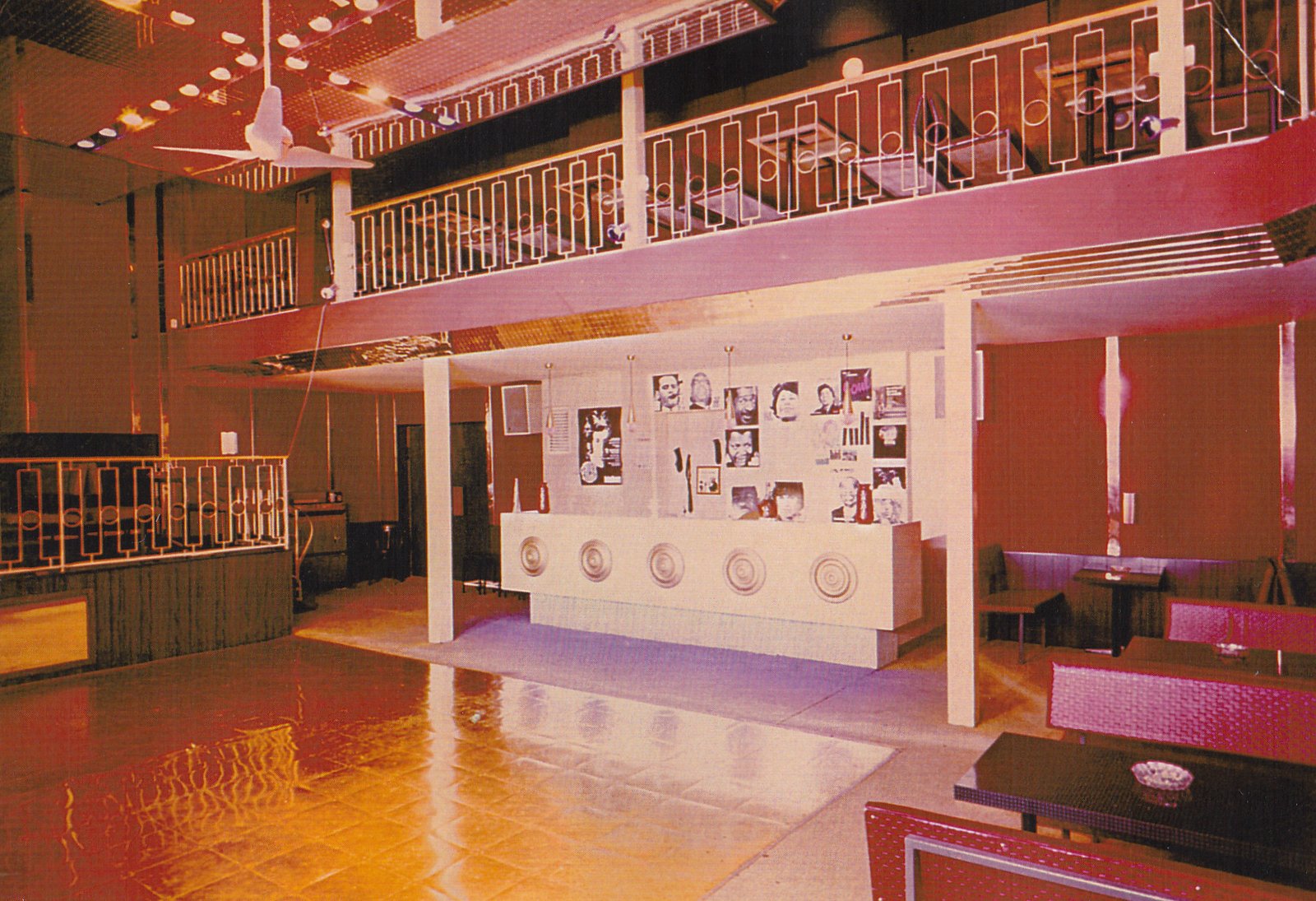
They played songs from the 50s, the 60s and the top hits from the present. And the top hit in 1968 was Hey Jude. The Beatles had stormed the hit parades. There was war in Vietnam, in Germany students protested against the war, in the U.S. Martin Luther King Jr. was assassinated, racial segregation had only been officially abolished four years prior by the Civil Rights Act. Aretha Franklin contemplated freedom, Marvin Gaye “heard it through the Grapevine” and Tammy Wynette stood by her man. Heintje praised his mother, Udo Jürgens was dedicated to Mathilda and Peter Alexander adored Delilah. The song had originally been sung by Tom Jones but back then hits with English lyrics were translated into German and rerecorded by German artists. This went on from 8 p.m. to 1 a.m. The only interruption was when at ten p.m. the lights were turned off briefly and passports were checked – anyone under the age of 18 had to leave. Every now and then, there were live concerts: Peter Maffay, Drafi Deutscher, Jürgen Drews. So far so dapper.
How did the Central gain its unique reputation? Such a reputation usually grows slowly. In the case of the Central there were two essential incidents that led to the establishment of the Central that was soon known and loved. First, the draft was discontinued in the U.S. in 1973. Then, Mr. Niethammer who had been the manager of the central dies of a heart attack. While Mr. Niethammer was in charge of the Central only U.S. American officers[Arlo Ever1] were allowed to enter to the club. The military police regularly came by to make sure this rule was adhered to. It is not known, whether this rule was established on the military base or whether it had been Mr. Niethammer’s decision. The regular soldiers hung out in the bars of the old town of Friedberg, that is, if they were the right color of skin. This was due to the fact that in many locations black soldiers were denied entry. After Mr. Niethammer’s death, his wife took charge of the management of the Central and she opened its doors to everyone: Rednecks, Latinos, African-Americans. And they all came.
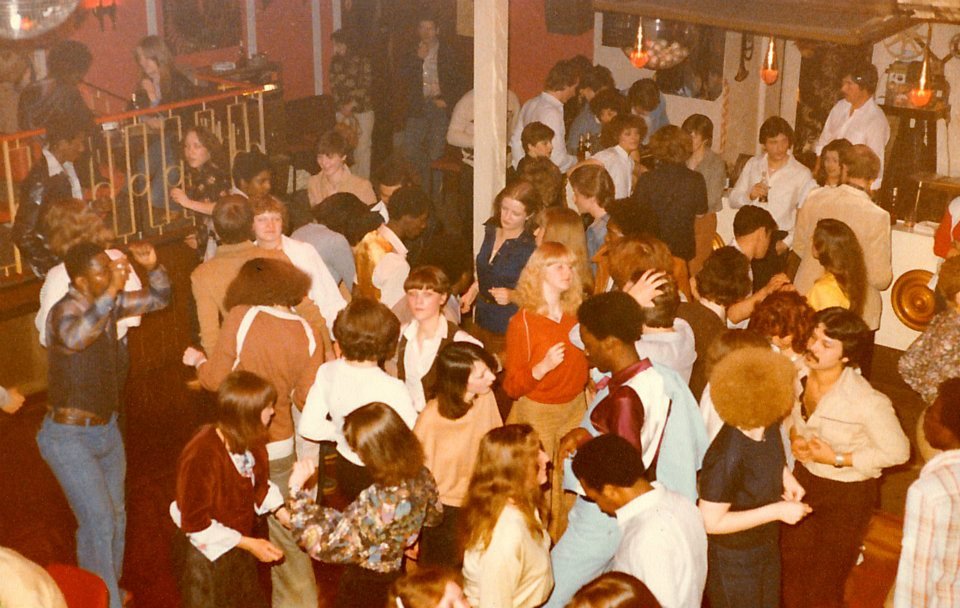
The end of conscription changed the composition of the army. Earlier, every American, regardless of how rich or poor he was, regardless of skin color and future prospects had to join the army. But without conscription, the number of those who were hoping that the army would lead them to a better life grew. In the U.S. universities have long charged high fees but those who had served in the military were allowed to study free of charge[Arlo Ever1] since the fees were covered by the military. Others had been on trial for committing mostly petty crimes such as theft, drug dealing, violation of the public peace, minor offences and they were given the choice: prison or army[Arlo Ever2] . Some came because their fathers had been in the army and their fathers’ fathers as well. And others came because regardless of all other circumstances, they didn’t see a bright future for themselves.
At Central Studio one recognized that, more than at any other place, there were many African Americans among the soldiers. Maybe it was just the fact that African Americans enjoyed dancing more than their Caucasian colleagues. One U.S. dollar was worth four German marks at that time. This allowed U.S. soldiers, despite the fact that they were not earning a great salary, to afford quite a number of things. Moreover, many GIs were young, they enjoyed having the freedom that they did not have back at home. In the U.S. they would have been under age as many were younger than 21. This would have meant no entry to clubs or bars and no beer (which is more washy and contains less alcohol in the U.S.) or any other alcoholic beverage consumption.
The Americans brought a certain exotic vibe to the Central. With that exotic vibe came the women and because of the women many brawls were started. According to the memory of those who were there at the time, the number of fights increased in the 1970s and the reason for the fights were often girls. It remains unclear however, whether the fights were between Germans and Americans or among American soldiers.
But picture this: Back then, American men (most soldiers were male) were pretty cool, self-confident and outgoing. They came to dance. They had the moves and they enjoyed asking the girls for a dance. German men used their bodies mostly to sit stark and stiff at the bar and to lose a bit of their composure with every beer. The small bar on the first floor became a German bastion, someone who was there remembers.
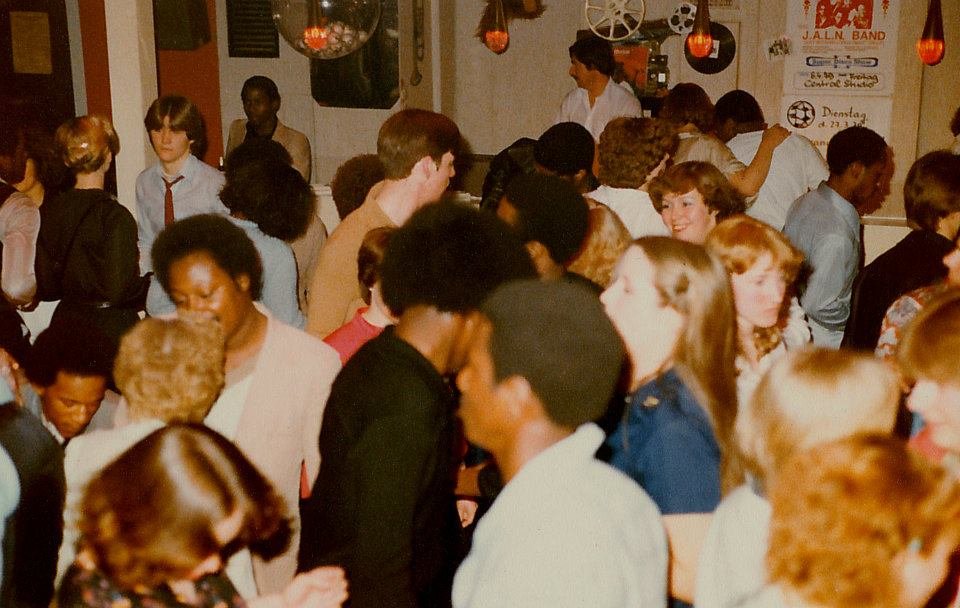
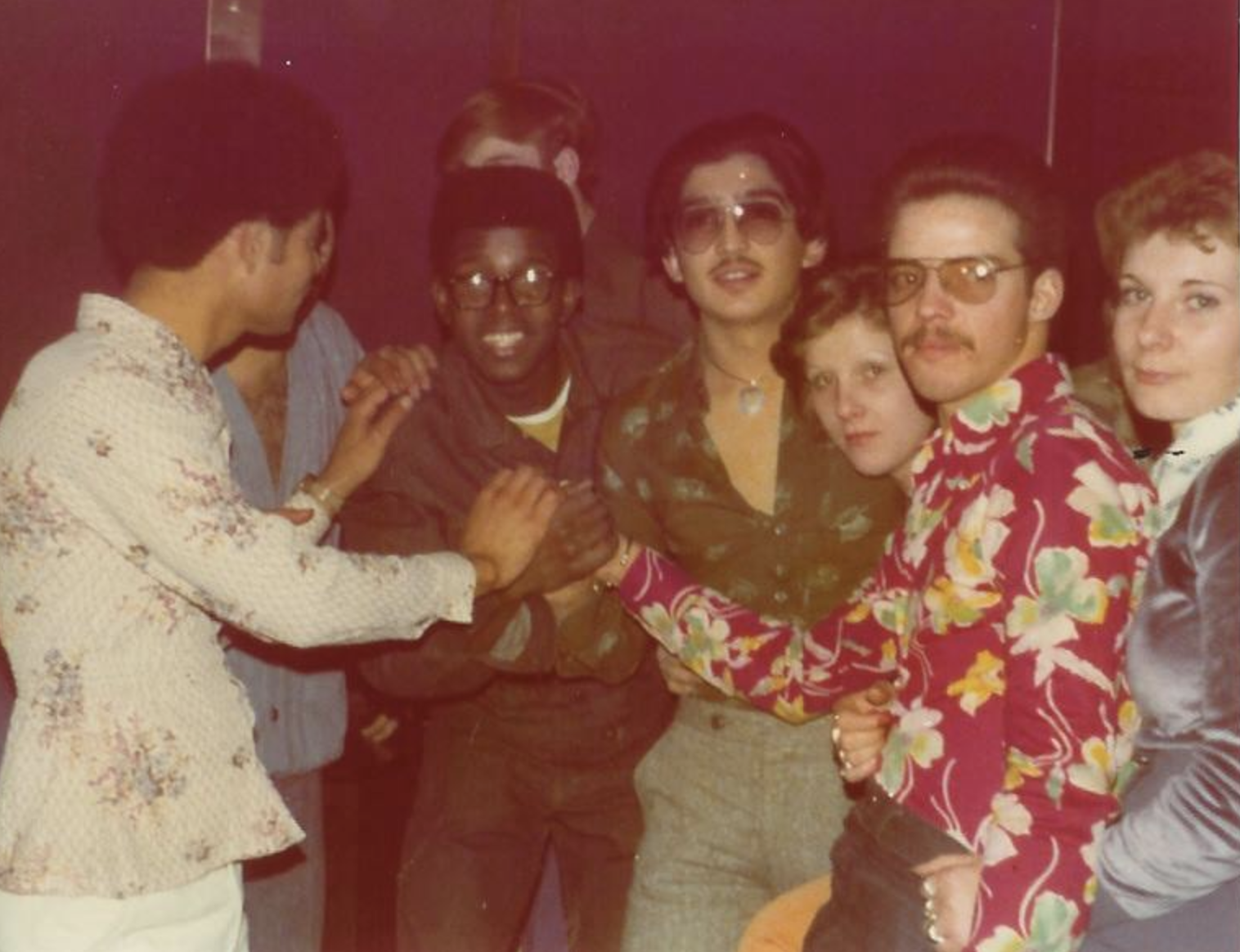
And that's how the 1980s began: German men sitting at the bar, two women on the dancefloor dancing a foxtrot together. Enter: American soldiers. They bring euphoria, a lack of inhibition as well as hopes and dreams. Meanwhile, Diana Ross is upside down. Blondie asks to be called. Styx celebrate the “best of times“. And The Police invent a chorus that transcends all languages: “de do do do, de da da da“. The dancefloor is packed. Every night. In 1981, the Central Studio had only one day off. On different nights, different music is played. Some nights, rock music is played exclusively, other nights are devoted to soul, funk and R'n'B. The different types of music draw different audiences. Not many African-Americans liked rock music, nor did rednecks like R'n'B. They tried Latin-nights but those weren't a success. Maybe it's because there weren't many Puerto Ricans or other Latinos in the army. Another reason could be the fact that Latin dances are traditionally danced with a partner. If there are no women who know how to move their bodies rhythmically, the joy of dancing and music is lost.
In other clubs the atmosphere was joyful, at the Central it was wild and unrestrained. It was as if the soldiers hat pressed the pause button on their old lives. The lived entirely in the here and now. For some, the future didn't matter at all, because they did not know what to expect from it. For others, being a soldier was a job to be done, but nothing to be discussed or even thought about after work. But another group knew that after their service, the real life would begin: a mortgage, a marriage, kids. They wanted to suck in a final breath of a careless life and to let it all out, to be present as if there was no tomorrow. They all knew that their time in Friedberg was limited. For most soldiers it was limited to two years.
When they were playing rock music you often had to be afraid that the lampshades would fall from the ceiling because the dancing became so wild. When they were playing black music, one would wonder whether what was happening on the dancefloor was still dancing or whether it was plain sex. And if there were fights, they were so intense that it seemed as if you were already in a war zone, not on a side street in front of a club on the outskirts of the old town of Friedberg in Hesse, Germany.
The Sundays were particularly excessive as everything else was closed on Sundays. There had now been established a club on the base too: the Capri. When all the other bars and clubs in the area closed on the weekends, people moved on to the Capri. Until they kicked everyone out. People would get up on Sunday afternoons and later at night, everyone would reunite at the only place open: the Central. Sundays had been established in the 1970s as more formal dance events in the afternoon (so called dance teas) for everyone who wasn’t of age yet. In the 1980s these dances became night events similar to Friday and Saturday nights. But Sunday nights were for everyone who couldn’t get enough.
On Sundays all the clubs on the Army bases ware closed. Not only in Friedberg but in Giessen and on all surrounding bases as well. And that’s why entire companies of soldiers from all the surrounding barracks migrated to the Central. No night was more crowded than Sunday night. The speakers were blasting black music, 400 bodies were squeezed together, dancing, laughing and flirting. No night sold more drinks nor saw more fights as soldiers from different units didn’t necessarily get along too well. You didn’t know this for sure but you would sense something. American GIs rarely spoke about the life on the bases or their employments, what they did in day-to-day life. Sometimes it felt like they were merely tourists who had been stranded in the Hessian provincial town and who partied with their bodies and souls. Until the situations got out of hand.
And that’s when Mrs. Niethammer would get in and be face-to-face with buff soldiers. A small, elderly lady who would break up fights and bang heads together. Nevertheless, she also had an open ear for the men. She would sometimes invite one of them to the bar, treat them to a burger and listen to their personal stories of homesickness. When soldiers met her on the street during daytime, they often greeted her by calling her “Hi, Mum”. Mrs. Niethammer had a special sensibility for her guests. On Tuesday nights before the club got really crowded, she hosted game nights: Bingo, puzzles, even hula hoop competitions. A bit of silliness to suggest a sense of coherence. She invited some of the bands that were already touring through all the American clubs: Percy Sledge, The Manhattans, the former Crew of Tupac. She welcomed the American soldiers the way they were and gave them what they were missing. Mrs. Niethammer organized break dance competitions and Halloween parties. She made rap battles possible (Turbo B of later Snap! fame was discovered here) and invited everyone for Thanksgiving events. She not only ran a club; she established a community.
In hindsight, the 1980s were a naïve, ingenuous and excessive time. Then came the 1990s with the gulf wars and the conflict in Kosovo. Injuries, invalidity, posttraumatic stress syndromes, it all came closer. So did death and dying. “The boys seemed different”, says someone who partied with them at the time. “It seemed as if they were partying to get away from and to take their mind off the horrors of war and conflict.”
The music changed too. Rock nights weren’t happening anymore in the 1990s. Hip Hop and R’n’B had become mainstream. Salt-n-Pepa wanted to talk about sex, Boyz II Men saw “the end of the road”, Arrested Development related stories about Tennessee and after the release of Eminem’s Slim Shady every last one of them started wearing baggy pants.
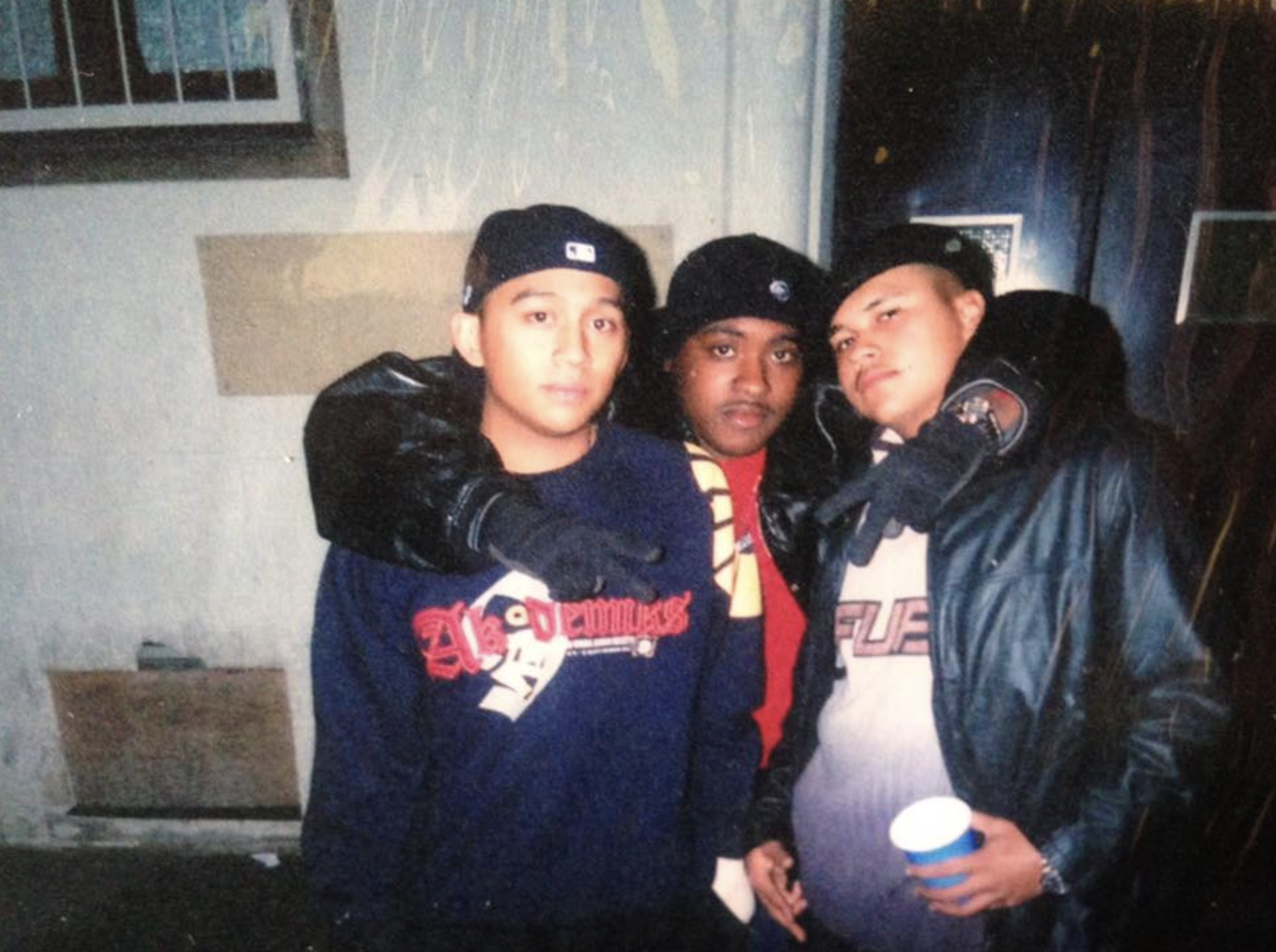
The nights after a company had returned from a training mission were particularly excessive. Most often, they disappeared for six weeks and you seldomly learned what they experienced during that time. The old town of Friedberg was coined “Combat Alley”, there were long lines in front of the whorehouses and dozens involved in street fights.
The Central was starting to employ security personnel. By the mid 1990s it wasn’t rare to see eight to ten Black Sheriffs, as the security guards were often called, at the club. The atmosphere was often tense, almost explosive. If things were going well, it would be the most joyful vibe you could find anywhere around. If things went badly, the most intense fights anywhere around would erupt. Mrs. Niethammer even banned some people from the club but usually the bans were soon lifted. Troublemakers had to stay away for two to three weeks before returning to the club. It sounds a little bit like being grounded, like being given some time to think about what you did. Mrs. Niethammer gave everyone the chance to prove and better themselves, to some multiple times. Her tolerance seemed endless. She knew very well that things happened inside the barracks that never saw the light of day outside the military fences and that accidents happened during the training missions that you would rather not know about. Others saw men who got too drunk too quick and lost their temper when a girl who had sat on their lap six weeks ago now warmed somebody else’s. The girls were the triggers that made the men explode. Mrs. Niethammer sensed that much larger conflicts were smoldering beneath.
Many women however, were oblivious to their own roles. How should they have known? “In some cases, you would suspect that the life stories that they told didn’t make much sense and contained large gaps” remark several women who were part of the scene. “Therefore, you couldn’t be sure what you were getting into, but you still did it, intoxicated by their exuberance”. But there was no such thing as a normal relationship with an American soldier. It started with the fact that these men had to share a room on the base. There was no privacy. The boys had to kick out their roommates for their amorous adventures. Most of them rented hotel rooms though. A hotel room was quieter and more intimate but it was also anonymous and exchangeable. You wouldn’t find out the small details that you see when you visit someone at their home, the pictures on the wall, which items are placed in the bathroom, if he takes of his shoes off or not, you wouldn’t learn any of that. Of course, the soldiers could visit the women at their homes but many still lived with their parents. “And most parents didn’t like it if you brought an American soldier to your house”, says one who tried exactly that. And how should the relationship continue once the Americans withdrew. Most of them were only stationed in Friedberg for two years. There were some women who sent letters (after the soldiers had returned home) to addresses that did not exist. Others travelled to the U.S. only to find out that their loved one already had a wife and children. There were others who met men who could barely organize their day-to-day lives.
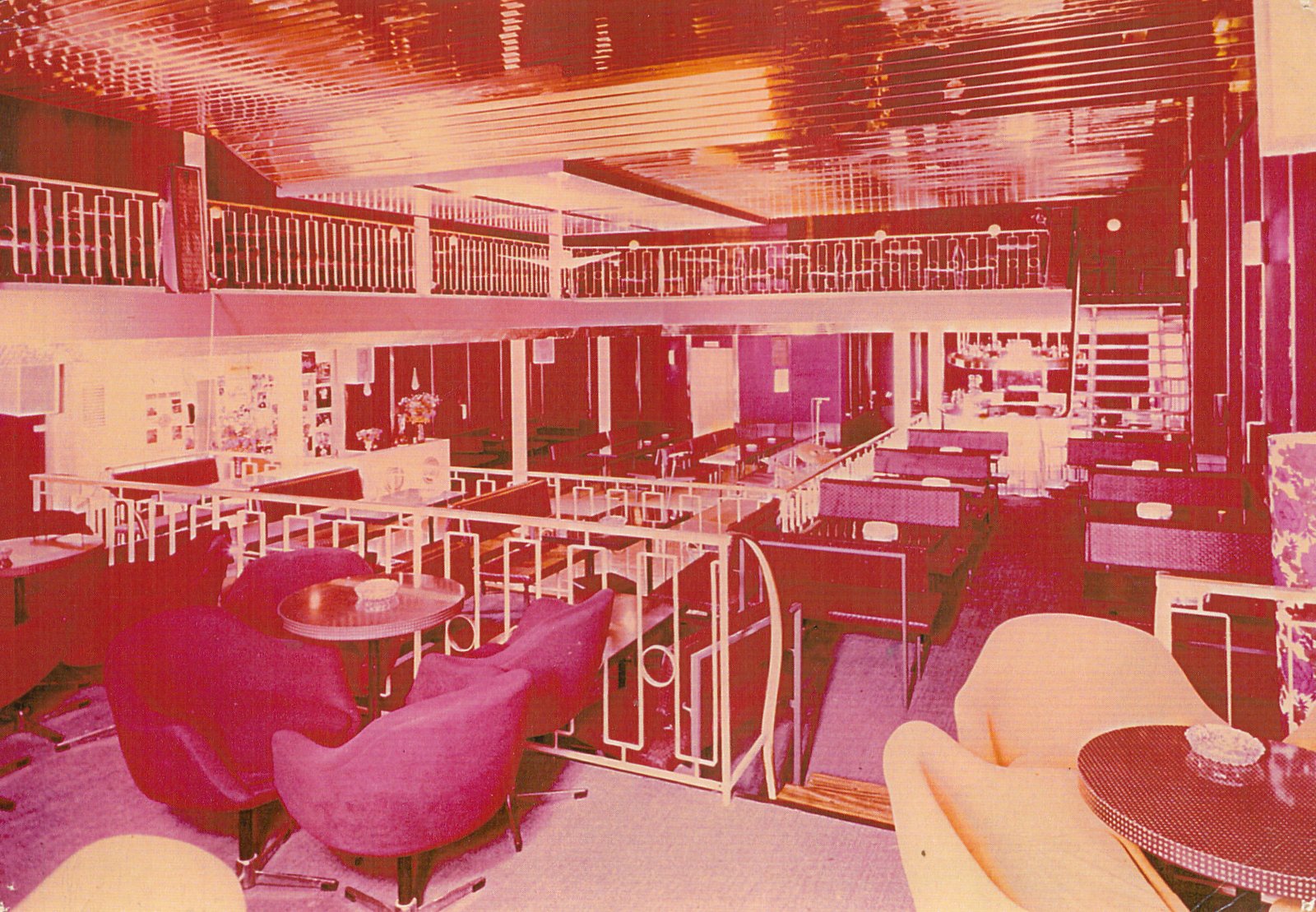
In 1996 Mrs. Niethammer sold the Central Studio to Ernst Jannick. He also owned the Fillwood in Bad Vilbel. Games and events became rare but he opened the Central to Abiparties (high school graduation celebrations). This also led to more flexible closing hours. Parties no longer ended at 1:00 a.m. but continued until three or went on even longer. The Americans joined these parties around midnight, celebrated, danced on tables and heated up the atmosphere even further.
But around the turn of the millennium the Central saw less and less guests. There were various reasons for that. On the one hand, the expansion of the closing hours. If you are out until 1:00 at night, you are still able to get up and do your service, even though it may be a little more exhausting than usual. But if you are out until 3:00 a.m. it becomes increasingly impossible. People go out less but if they do, they do it for real. The quality of the parties changes. This is the case at the Central too. First, they dropped the Tuesday nights. Wednesdays became keg nights until they shut them down as well. At one point, doors only opened on Fridays and Saturdays. This development didn’t only occur at the Central, it was also the fate of many smaller clubs in the area. The people stayed away. Many were shut down entirely in the early 2000s. Maybe it was because of the evolving age of social media in which people had more options and learned about these quicker. Nobody knows for sure.
At the central, there was a second development: The Turks. People called them “the Turks” but it is unclear which nationality they were, whether Kurdish or from Iraq or Lebanon. It doesn’t make much of a difference. All that matters is that they weren’t happy about the wars in the Gulf region and that after the attacks on the World Trade Center on 9/11/2001 they saw the American operations as a military campaign against Islam. In the old town of Friedberg there were regular fights between Americans and Turks. Both provoked each other and didn’t back down from any form of conflict. The streets of Friedberg became rough and the central gained a reputation for being a rough place as well despite the fact that inside the club only a few fights took place.
Then the Army decided to withdraw from Friedberg. Entire companies left the city after XX. And with every withdrawal, the Central became less crowded. Not too many came to replace the American audience. On Saturdays they played a mix of pop music and energetic rock songs to attract German customers but the club was never as packed as it had been when the Americans were still there. When all Americans had gone in 2007 the Central even shut down entirely for three months. It was the first time since it had opened its doors in 1968. It was time for reinvention. They tried many things and gave them up again sooner or later until in 2009 two women started Lounge Parties. Then, these were parties for people of the age of 30 or older. The Lounge Parties have continued to this day, only that the crowd has aged and attendees are now 40 or older.
